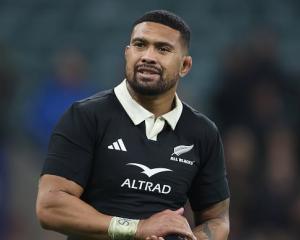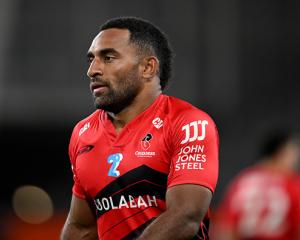
A new sports code was played in Dunedin for the first time exactly 100 years ago today.
At its peak in the mid-1920s, rugby league divided the city in half.
Later, after another boost in the 1950s, anyone aligned to the sport was unofficially seen as a traitor.
Perhaps league has been one of the great survivors in Otago sport.
At times it has seemed certain to die, but there have always been those who have found the right time to bring it back.
The story of Otago league begins with great All Black William "Massa" Johnston.
Johnston, an Alhambra and Otago forward, defected to league to join the pioneering All Golds on their tour of Great Britain in 1907.
That was the catalyst for the introduction of the sport to Otago.
The public wanted more information about this new code, which was then still under its old name: Northern Union Rules.
The second major breakthrough for southern league came on July 15, 1908, when two Southland rugby clubs, Pirates and Britannia (Bluff), played the first inter-club game of rugby league in New Zealand.
The clubs had been banned by the Southland Rugby Union for refusing to play a midweek competition fixture on a flooded ground.
This led to the players from both teams being declared professional.
Most of them, including All Blacks Jerry Burgess and Don Hamilton, were subsequently banned from rugby.
A meeting to form the Southland Rugby League was held a week later and on August 20, 150 members paid subscriptions to the sports body.
Dunedin's turn came on September 2, when more than 100 people gathered at Victoria Hall.
C. E. Keast was voted to chair the meeting, which at its conclusion saw 62 enrol.
The Otago Daily Times did not give a favourable report towards the fledging new code by writing "it was bound to come. The Northern Unionists have invaded us."
But it was also reported that 1903 All Black Frederick Given, who was an Alhambra team-mate of Johnston's, also lent his support, mainly because of the way in which players were treated by the then New Zealand Rugby Football Union.
The article reported that Given said most players were working men, yet were poorly treated by the NZRFU.
He urged the meeting to form the Northern Union League to oust rugby union.
Alhambra provided the bulk of the rebels and over the next few weeks several practices were held at the Montecillo and Caledonian grounds.
Two days before Otago played Southland, Keast made one final appeal for Dunedin public sympathy by saying the game was being played on a purely amateur status, and it would be a demonstrable improvement on rugby union.
The advertisement for the game in the Otago Daily Times again tried to demonstrate the amateur status of the code by headlining it with the Northern Union Amateur Football League (Otago centre) Grand Exhibition Representative Match.
Those that attended the game may have queried the amateur status, as the admission fee was a shilling, and for children half price.
Admission to the grandstand was sixpence, but women were free.
Before the match kicked off at 3pm, the Mornington Band entertained the crowd of 2000.
The Otago side was made up of fullback D Bannantyne, three-quarters J Harrhy, WR Kirk and G Ogg, five-eighths EO Nees and P Walker, halfback J Coulter, and forwards J Bryant, E Manley (captain), T Mockford, W Harridge, J Campbell and Larkins.
Dennis McKewen, the father of Otago representative Ted McKewen and Otago life member Bert McKewen, was the referee.
The more experienced Southland side got off to a good start with a 5-0 lead, before Harrhy scored a try for Otago.
Southland scored early in the second half, but Otago rattled on eight unanswered points to win 11-8.
The Otago Daily Times said the game was probably ideal from a spectator's point of view, despite the faulty handling of the ball.
On October 7, Southland made up for its loss by beating Otago 30-14 at Queens Park in Invercargill.
After the 1908 season, there were brief further flirtations with league in the south until the Otago Rugby League was reformed and incorporated 14 years later.








!["It’s just one year [that Dunedin misses out]. There are opportunities again in the future for...](https://www.odt.co.nz/sites/default/files/styles/odt_landscape_small_related_stories/public/story/2025/12/gettyimages-1190749175-594x594.jpg?itok=jxN1B1bV)



